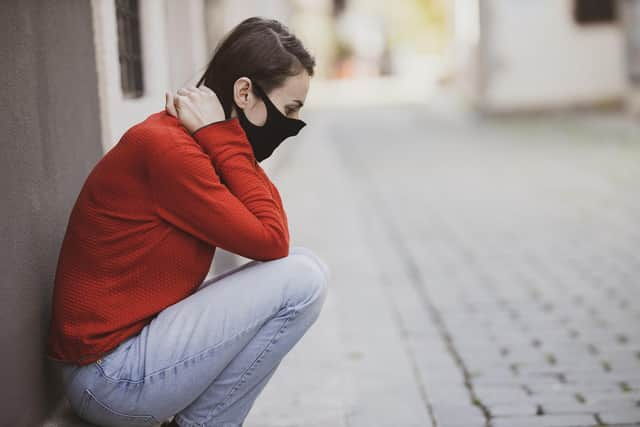No evidence vaccine reduces risk of Long Covid, says expert
While vaccination has reduced hospitalisations and deaths, it is not yet known whether it will reduce rates of Long Covid said Dr Elaine Maxwell, Scientific Adviser at the National Institute for Health Research, which has funded several studies into the condition.
Scotland could see up to 70,000 people suffering with Long Covid for a year or more by Christmas, she said, with a proportion of them needing support from an already strained NHS.
Advertisement
Hide AdAdvertisement
Hide AdRecent figures from the Office for National Statistics (ONS) showed 385,000 people in the UK - 34,000 in Scotland - reported living with Long Covid symptoms for a year or more.


This may significantly increase in the Autumn, a year after the infections of the second wave, Dr Maxwell said.
“I think we can predict that when we get to the winter and wave two, we'll see the number of people who have had long Covid for over a year rise quite dramatically again,” she said.
Little is known about Long Covid, and the term covers a broad range of symptoms and length of illness.
The symptom which most often prevents people returning to work after infection is brain fog, Dr Maxwell said.
Other symptoms include fatigue, shortness of breath and muscle aches. Some 17,000 Scots say Long Covid has limited their activity a lot, according to ONS Figures.
“There are a lot of people who feel unwell for weeks, and a small amount of people who feel ill for a much longer period, and we don't really understand enough about those people who've been ill for a much longer period,” said Dr Maxwell.
“We don't know how quickly they will recover, whether they'll become people who’ve got long term illness.
Advertisement
Hide AdAdvertisement
Hide Ad“It’s quite a sizable number - it’s currently nearly 400,000 [in the UK] - and it’s going to probably double by Christmas.
“That’s quite a lot of people to have a long term illness.”
Dr Maxwell said the vaccination programme may not reduce rates of Long Covid as much as hospitalisations and deaths, as there is no “direct link” between severity of illness and whether or not someone develops Long Covid.
“We know people who've been vaccinated can still get an infection, and in fact some people can be reinfected,” she said.
“They're not as likely to be admitted to hospital and die but whether that means they're less likely to get Long Covid, I don't think there's any evidence for that.”
If high numbers of people have a mild or asymptomatic case of the virus there may still be high numbers of Long Covid patients, Dr Maxwell said, even if they are a lower percentage of those infected.
Dr Maxwell urged caution in easing restrictions, saying Scotland is “not out of the woods yet”.
She said: “So much is unknown that I personally think the precautionary principle would play… you can either say ‘we don’t understand it so we’ll take the risk’, or you can say ‘we don’t understand it so we’ll be careful’.
“I don't think we can be confident that we broken the link with long Covid and that there won't be more consequences.”
A message from the Editor:
Thank you for reading this article. We're more reliant on your support than ever as the shift in consumer habits brought about by coronavirus impacts our advertisers.
If you haven't already, please consider supporting our trusted, fact-checked journalism by taking out a digital subscription.
Comments
Want to join the conversation? Please or to comment on this article.
